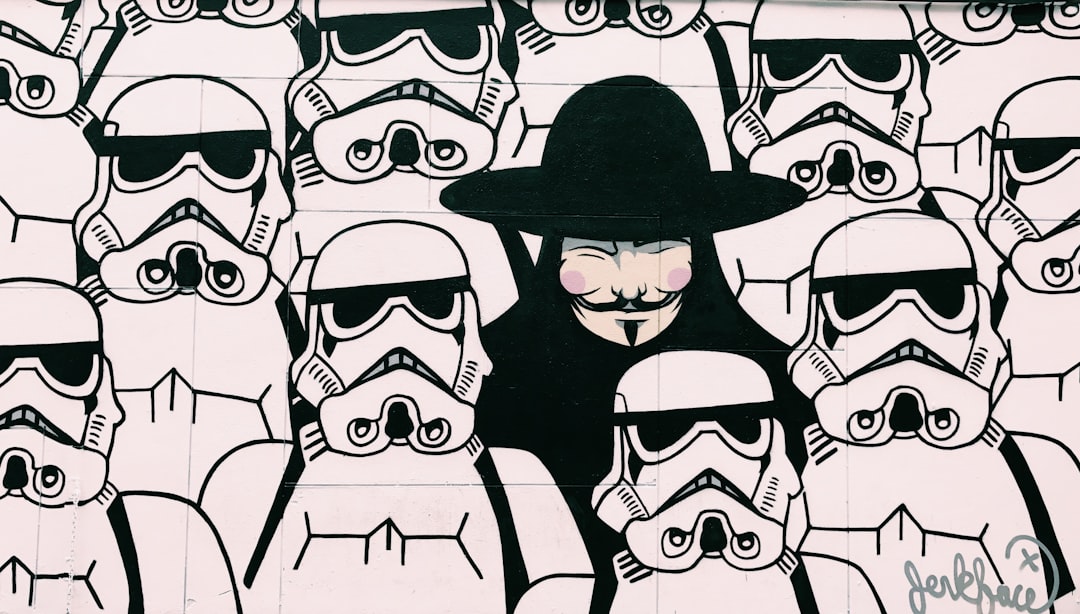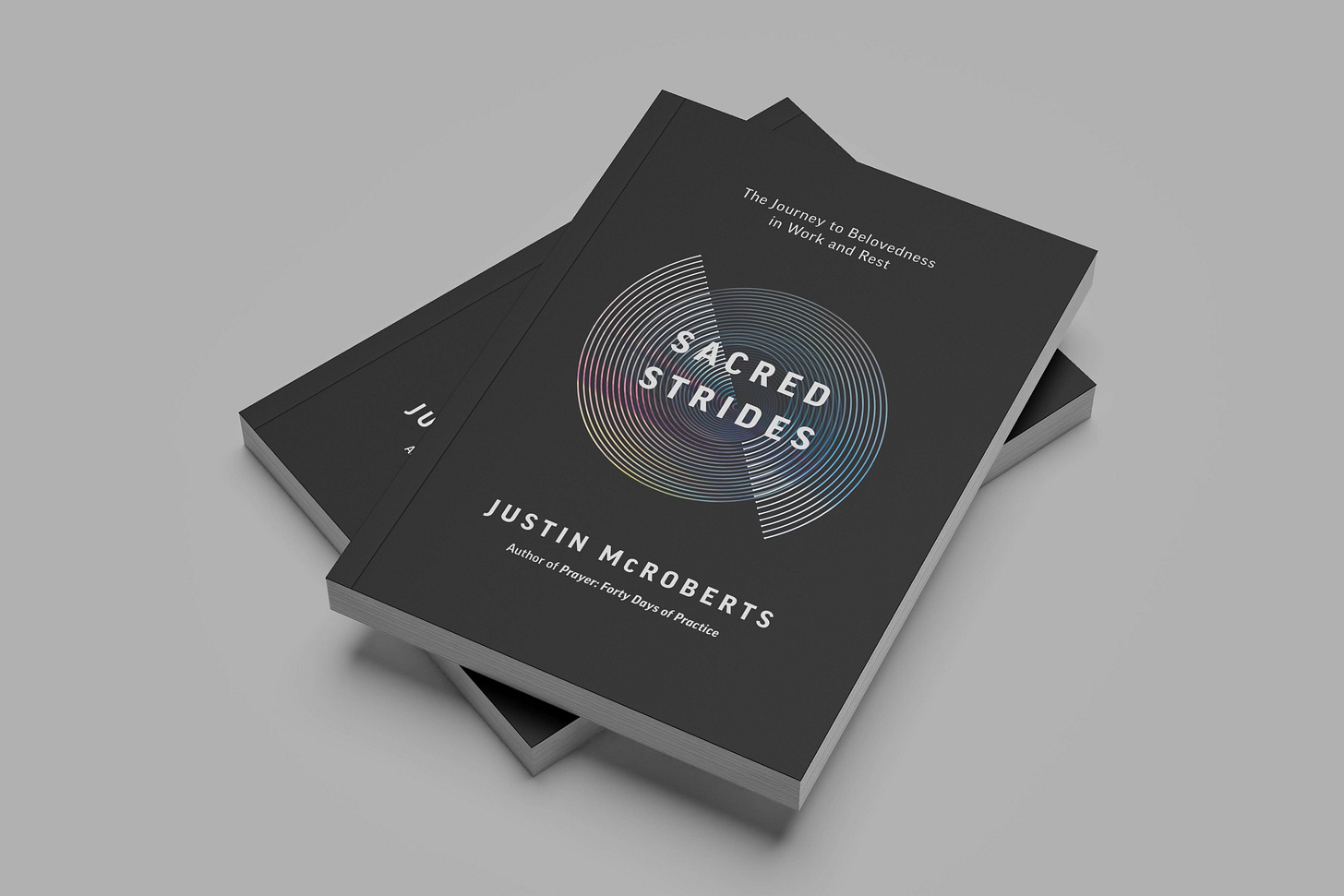You can listen to the voiceover of the entire Substack post here. It’s a long one (and you can speed it up). I chose to include the Post Script & Book Update in the voiceover. *I’m also toying with a podcast launch here on Substack, and I’m trying to get my bearings.*

I’m making a shift. If you’ve paid attention, you may have noticed that I’ve been shifting for a while. For the last year or so, I stopped identifying as an spiritual abuse “advocate.” I sensed the gatekeeping in the advocacy space, and I don’t feel I fit there. Or rather the energy it would take to “fit” and “belong” would break me.
I’ve met and interacted with so many people who acknowledge and recognize the harm of spiritual abuse in the church. I’ve met with many beautiful, spacious people who are advocating for change in the Body of Christ. But as I moved through some advocacy spaces, I’ve also sensed some similar yellow flags. Some red flags, too.
I sensed that some wanted to advocate for the eradication of spiritual abuse, but they refuse to acknowledge that racial trauma in the church is spiritually abusive. I sensed the creation of new fundamentals to which others were required to conform in order to belong. I sensed a lack of agency, a message that says, “You have to support the people I support, and you have to hate the people I hate. Otherwise, your cancelled.” I’ve sensed a new definition of sameness and experienced sameness still pandered as unity. I sensed the burden of white supremacy and hierarchal whiteness creeping into the spaces I hoped I would find welcome.
I sensed truth being used as a bludgeon again.
It was while I was still in school for Behavioral Science that I learned that spiritual abuse was and is the gateway to criminal instances of abuse. I was studying hard things for my degree while living some of those hard things while on staff at my church. I learned, like many of you, that spiritual abuse is the quietly unacknowledged problem that’s lurked in Christendom for a long time.
But I also see another problem—far more common and unacknowledged—that is ubiquitous in all human spaces.
It is a widespread culture of othering that makes spiritual abuse possible.
Othering—marking people as “other” or less-than—is commonplace in Western society. It is how Western society itself was formed. Conquistadors and colonizers othered Black and indigenous bodies to hoard power. (I mention all of this in my most recent, first paid-subscriber only post, linked here.)
Western society has made othering so normal that we can’t see it until it has ruptured and ruined lives. Sometimes we see the ruptures and ruins and still cannot name the othering.
What is Othering?
The concept of the Other first developed in the field of phenomenology (or the study of being). German philosopher G.W.F. Hegel explored what it meant to be the Other in the study of self-consciousness. There is a section is his book Phenomenology of Spirit where he discusses self-consciousness and explains what is commonly know as the Master-Slave Dialectic (or the Lord-Bondsman Dialectic).
The Master-Slave Dialectic1 says that the search for a sense of self is found only in relating to and experiencing the consciousness of a separate Other. In experiencing this Other, Hegel says we gain a greater sense of who we are and who we are not. But he elaborates that within this Dialectic, the Lord-like consciousness tends to understand whom he is only through the domination and subjugation of the Bondsman or Other.
Othering, at its core, is to subjugate another human being. The Master oppresses and removes power from the Other so that the Master can retain power for himself. 2
French writer, feminist, and philosopher Simone de Beauvoir also wrote on the Other in her book Le Deuxième Sexe or The Second Sex. Her argument is that women have often lived as Other in a world made for men. She also argues that Jewish people and Black Americans have been subjected to become Other throughout the history of the West and that the oppression of the Other is something against which we should firmly stand.
The problem? Both Hegel and de Beauvoir othered people. Hegel was racist; he believed in a hierarchal theory of race, reinforcing the social constructs of race as we understand them today. For all that she did to empower females as a female, de Beauvoir was sexually abusive toward females. Despite having written so much on othering, both Hegel and de Beauvoir subjugated other people and believed they were justified in exerting power over them.
Othering in Christianity
At it’s root, othering is an identity issue. Fellow humans other people when they struggle to find anything good within themselves. When we do not believe that goodness is inherent to our human nature, when we do not sense goodness in our bones, we risk othering people to make much of ourselves. The comparisons ruin us. We other because it is the cheapest way to build up our self-esteem.
Instead of being rooted and established in Jesus, many Christians make Christ in their own image. This is the foundation of othering in the church. When Christ is in your own image, when Jesus believes as you believe exactly as you believe it, it is very easy to count those unlike you as less-than. It may not be overtly abusive, but Christians commit a lot of normal-but-harmful acts of othering in the name of being “right.” Instead of BEING righteous and welcoming those on the margins, Christians often USE righteousness to other those unlike them.
Once you’ve experienced or witnessed othering, your brain understands the theory of it and your eyes can see how that theory applies within other contexts. Within a survivor space, I once watched a survivor-advocate tell another survivor (paraphrase), “Your healing is different. Your story is different. That makes you other.” I winced while the speaker spoke with conviction and power, leaving the other survivor paralyzed.
It wasn’t hospitable. It was hostile. It was a reincarnation of Hegel and de Beauvoir—pointing to the harm of othering and perpetuating the oppression still.
When we are shaped by a faith that says truth is “absolute,” we can be tempted to use truth as a hammer and hurl it at people. Even when we’ve left faith-based spaces.
Absolute truth is a Western concept. It grew, emerged, and became more concrete with the rise of fundamentalism, which happened around the time the women’s suffrage movement was cookin’ and when Darwin published On the Origin of Species.
Absolute truth and fundamentalist reactions are intellectual ways to gain control in a changing world.
Those wielding absolute truth work to make heretics of us all.
The Hebrew understanding of truth is that God’s truth is continually unfolding. That all of life is a revelation. As partakers of creation, we are witnessing what God is revealing at this moment in time. Is there an absolute truth? Sure. But we don’t know the full of it yet. The Apostle Paul wrote to the Corinthians in his first letter, “For now we see only a reflection, as in a mirror, but then we will see face to face. Now I know only in part; then I will know fully, even as I have been fully known” (1 Corinthians 13:12, NRSV).
In light of this continuing revelation, we are to live hospitable lives, humbling ourselves to welcome and learn from those unlike us. It is an invitation to a feast where we can sit down and admit, “I don’t know everything yet, and I believe I can learn something from you. Tell me your story”
Ecumenical Living
My favorite character from Tolkien’s Lord of the Rings series is Treebeard. In The Two Towers he says, “I am not altogether on anybody’s side, because nobody is altogether on my side.”
You won’t see me list a statement of faith anywhere because I want my faith to be a conversation. An unfolding. An open door to who I am becoming. And the truth is I’m resistant to wearing any label or joining any “side” because the “sides” I’ve been on so often depended on me being disconnected from myself. They othered me when I didn’t agree with them. Honoring the image of God in my face means I will no long self-abandon in order to belong. I’ve watched conservatives other people in their conquests. I’ve also see progressives and liberals lob their own grenades. I’ve seen pastors and Christians other religious abuse survivors. I’ve also seen survivors other people to protect themselves. I lament it all, and I refuse to add noise to a conversation that doesn’t want me.
The way forward isn’t to become the polar opposite. The way forward is to hold the tension—to see how broken our world is and to speak peace over it all.
Many may not see me as a typical “Christian.” And personally, I no longer identify a spiritual abuse survivor advocate. I am a human being who has been othered in so many spaces, and as a writer, artist, and student, I refused to conform to the patterns of othering in this world.
Spiritual abuse has shaped my story and you will still see me write and speak pointedly to its harm. But my way forward is to speak peace over brokenness. To express righteous rage at atrocity and heartache. And, maybe most importantly, I want to be present as an anchor of co-regulation—the hands and feet of Jesus—in a nervous world.
Spiritual abuse is a spiritual malformation, breaking and bruising. My way forward is to form something different—something ecumenical and hospitable. I will do my part to create generative cultures. To model what it is to be spiritually formed as a peculiar person.
Because my identity and worth are held in the scarred hands of the Othered Christ, I am free to invite and welcome those unlike me into my writing spaces. But Jesus’s image in me also has me draw strong boundaries against those determined to be against me.
Refusing to other people is my resistance. Breathing life into the othered is my hope.
With you and for you,
Post Scripts
I wanted to write this post for a few reasons.
First, it explains why the name of my Substack has changed from “Letters for the Wilderness” to “Othered”.
Second, it aligns not only with how my story has recently ruptured. It makes space for all the ways I have been othered throughout my life both in and out of faith-based spaces.
Third, it makes space for where I’m headed. I currently see my future work oriented toward spiritual formation. Spiritual abuse is a fruit of spiritual malformation; I want to do my part to ensure that the story we’re writing today doesn’t perpetuate the malformations of our past. (I’m also a new student in the M.A. Spiritual Formation program at Northeastern Seminary, filling my theological toolbelt not only for future writing, but also to better serve trauma recovery & spiritual direction clients.)
I hold no judgment for how other people choose to engage the conversations on spiritual abuse and trauma in the church. This post is me making space for me and inviting you into how I want to show up in the world.
Book Updates
And all of this sets me up to give you some book updates. 😊
I have an official title. If you didn’t know, traditionally published authors (those working with a publisher) don’t always have final say on the name of their book. However, the titling process with my publisher, Baker Books, has been a dream. I’m excited to share the final title:
Othered: Finding Belonging with the God Who Pursues the Hurt, Harmed, and Marginalized
If you liked reading this newsletter, you’ll find more of this sort of thing throughout the book.Othered is currently in the revisions process. I’m working with my editors, fine-tuning the content before we send the final manuscript away. We’re looking at a book launch sometime in June 2024.
I’m also at the point where we start thinking about cover design, and I am ELATED to share: I get to illustrate the cover!
I sent my marketing team some mockups of what a cover could look like in addition to a few other design examples that spoke to my general vibe. I was expecting to receive a few cover options from which I could choose. Instead, the art director loved my mockups and decided to work with me in the cover process. Do you know how bananas unusual this is?A few of you have asked if I will have a book launch team. Short answer is yes, but I want to make it manageable and sustainable for me as well as keeping it life-giving for you. I’ll probably host a “launch team” here on Substack. Anyone who wants to join the launch team will pre-order the book next year, fill out a form letting me know you pre-ordered, and I will give each member of the team a free 6-month paid subscription to my Substack so that you’ll have all the exclusive content, including a ZOOM event(s) where I chat about the book and answer questions.
Just for Fun
I did a IG live with my own creative coach Justin McRoberts at the beginning of June! You can go through and watch the IG live video on his or my Instagram feeds, but I’ve got audio of the interview included here.
You can buy Justin’ book, Sacred Strides, anywhere books are sold.
Dialectic is the study of competing truths or opposing opinions. I believe dialectical study is absolutely pertinent in theological study, especially as we navigate competing truths. The study of theodicy itself is a dialectical study. Additionally “absolute truth” is a Western concept. Acknowledging truth at the continual unfolding story God reveals to us is an Eastern, Hebrew concept.
I am giving a very reductive description of the Master-Slave Dialectic here because Hegel’s Phenomenology of Spirit is a beast of a book to read. I learned a lot by watching Abigail Thorn’s Philosophy Tube video explaining the Master-Slave Dialectic. To help orient you to the video, this is recorded and published before Abigail transitioned.







You’ve nailed something I’ve noticed for quite a while now. In our desire to get away from conservative fundamental ideas, we often plunge ourselves into progressive fundamental ideas. The heart and attitude don’t really change, just the list of expectations and required behaviors. We are still just as black and white, just as rigid, and just as us versus them in our thinking.
Living in a land of paradox and tension where we don’t claim to have all the answers and are okay with that is tricky, but it’s SO good. Thank you for these words!
I want to sit with this post. So much gold here. I cannot wait for the book!!!